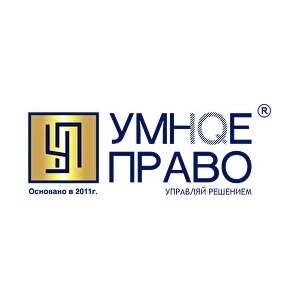Best Public-Private Partnerships (PPP) Lawyers in Russia
Share your needs with us, get contacted by law firms.
Free. Takes 2 min.
Or refine your search by selecting a city:
List of the best lawyers in Russia
About Public-Private Partnerships (PPP) Law in Russia
Public-Private Partnerships (PPP) in Russia are collaborative agreements between the government (public sector) and private companies (private sector) for the creation, modernization, management, or operation of infrastructure and services. The PPP framework allows for shared risks and resources, aiming to deliver public benefits by leveraging private investments, expertise, and technology. Russia's approach to PPPs has developed significantly over the past decade, with comprehensive regulations and increasing project diversity such as transport infrastructure, healthcare, utilities, and education facilities.
Why You May Need a Lawyer
Engaging in a PPP project in Russia involves numerous legal, financial, and operational complexities. You may need a lawyer in situations such as:
- Negotiating and drafting PPP agreements or contracts
- Understanding and complying with federal and regional regulations
- Addressing tender and bidding processes or contesting procurement results
- Assessing and managing investment, tax, and risk allocation issues
- Handling disputes between public authorities and private participants
- Securing necessary licenses, permits, or approvals
- Developing or responding to project feasibility studies or business proposals
- Reviewing project financing structures and legal due diligence
- Representing your interests in courts or arbitration proceedings arising from PPP-related matters
The legal landscape can be challenging, especially for first-time participants, foreign investors, or organizations unfamiliar with Russian law and procedures.
Local Laws Overview
PPP activities in Russia are primarily governed by a set of federal laws, the most significant being Federal Law No. 224-FZ On Public-Private Partnerships, Municipal-Private Partnerships in the Russian Federation, and Amendments to Certain Regulatory Acts of the Russian Federation (enacted in 2015). Additionally, sector-specific laws and regional regulations may apply depending on the project type and location.
Key aspects of local laws include:
- Definition and types of permissible PPP arrangements, including concessions and various partnership models
- Procedures for project initiation, including submission, evaluation, and approval of project proposals
- Regulations governing the tendering and competitive selection of private partners
- Requirements for transparency, public disclosure, and approval by authorized state or municipal bodies
- Rules concerning the allocation of rights and obligations, risk sharing, and compensation mechanisms
- Financing provisions, including state guarantees and support measures for PPP projects
- Monitoring, control, and reporting requirements during project implementation
- Dispute resolution mechanisms through Russian courts, arbitration, or mediation
Notably, certain sectors (such as defense and some energy projects) may have additional regulatory restrictions, and foreign investors should be aware of any sectoral limitations or additional authorizations required.
Frequently Asked Questions
What is a Public-Private Partnership (PPP) in Russia?
A Public-Private Partnership in Russia refers to legally regulated, long-term collaboration between a public body (such as a government ministry or municipality) and a private organization for developing infrastructure or providing public services, sharing responsibilities and risks.
How are PPP projects initiated in Russia?
PPP projects can be initiated either by public authorities identifying a need and inviting private partners, or by private companies submitting proposals. Projects undergo a structured evaluation process before approval.
What types of PPP models are available in Russia?
The main PPP models include concession agreements, lease agreements, build-operate-transfer (BOT) models, and other contractual forms. The specific model depends on the type of asset, project duration, and roles of each party.
Are foreign companies allowed to participate in PPP projects in Russia?
Yes, foreign companies can participate in Russian PPP projects, but may face sectoral restrictions or require additional approvals in sensitive industries.
What are the main legal risks in participating in PPP projects?
Legal risks include contractual disputes, regulatory changes, compliance challenges, financing issues, political interference, and potential early termination of agreements.
How are disputes in PPP projects resolved?
Disputes are usually resolved through negotiations, but PPP agreements can provide for Russian court proceedings, domestic arbitration, or in limited cases, international arbitration.
What is the typical length of a PPP agreement?
PPP agreements in Russia are generally long-term, ranging from 5 to 49 years, depending on the project scope and sector.
What government support measures are available for PPP projects?
Government support may include co-financing, state guarantees, tax incentives, and administrative support to facilitate project implementation.
Do all PPP projects in Russia require a public tender?
Most PPP projects require a competitive tender process, though certain direct negotiations are allowed in specific scenarios or smaller projects.
What are common causes for the termination of a PPP agreement?
Common causes include material breach of contract, failure to fulfill obligations, force majeure events, mutual agreement, or public interest requirements.
Additional Resources
Those seeking further guidance on PPP legal matters in Russia can refer to the following:
- The Ministry of Economic Development of the Russian Federation - responsible for promoting and regulating PPPs nationwide
- Russian Public-Private Partnership Development Center (PPP Center) - provides project support and information
- Regional PPP Units and Departments - exist within many federal subjects for local projects
- International organizations such as the World Bank or the European Bank for Reconstruction and Development (EBRD), which provide documentation, research, and technical assistance related to Russian PPPs
Professional legal consulting firms and bar associations also offer legal services tailored for PPP transactions and disputes.
Next Steps
If you need legal assistance with a PPP project in Russia, consider the following steps:
- Clearly define your goals and gather all relevant documentation related to your planned or current PPP project
- Contact a qualified lawyer or legal firm specializing in Russian PPP law and infrastructure projects
- Schedule a consultation to discuss your project’s legal structure, potential risks, and compliance requirements
- Work with your lawyer to review, draft, or negotiate contracts, and ensure adherence to legal regulations
- If needed, seek further guidance from regional PPP support centers or relevant government departments
Initiating contact with legal professionals early in the process can help address risks proactively, optimize your project’s legal framework, and increase the likelihood of a successful PPP venture in Russia.
Lawzana helps you find the best lawyers and law firms in Russia through a curated and pre-screened list of qualified legal professionals. Our platform offers rankings and detailed profiles of attorneys and law firms, allowing you to compare based on practice areas, including Public-Private Partnerships (PPP), experience, and client feedback.
Each profile includes a description of the firm's areas of practice, client reviews, team members and partners, year of establishment, spoken languages, office locations, contact information, social media presence, and any published articles or resources. Most firms on our platform speak English and are experienced in both local and international legal matters.
Get a quote from top-rated law firms in Russia — quickly, securely, and without unnecessary hassle.
Disclaimer:
The information provided on this page is for general informational purposes only and does not constitute legal advice. While we strive to ensure the accuracy and relevance of the content, legal information may change over time, and interpretations of the law can vary. You should always consult with a qualified legal professional for advice specific to your situation.
We disclaim all liability for actions taken or not taken based on the content of this page. If you believe any information is incorrect or outdated, please contact us, and we will review and update it where appropriate.
Browse public-private partnerships (ppp) law firms by city in Russia
Refine your search by selecting a city.
















